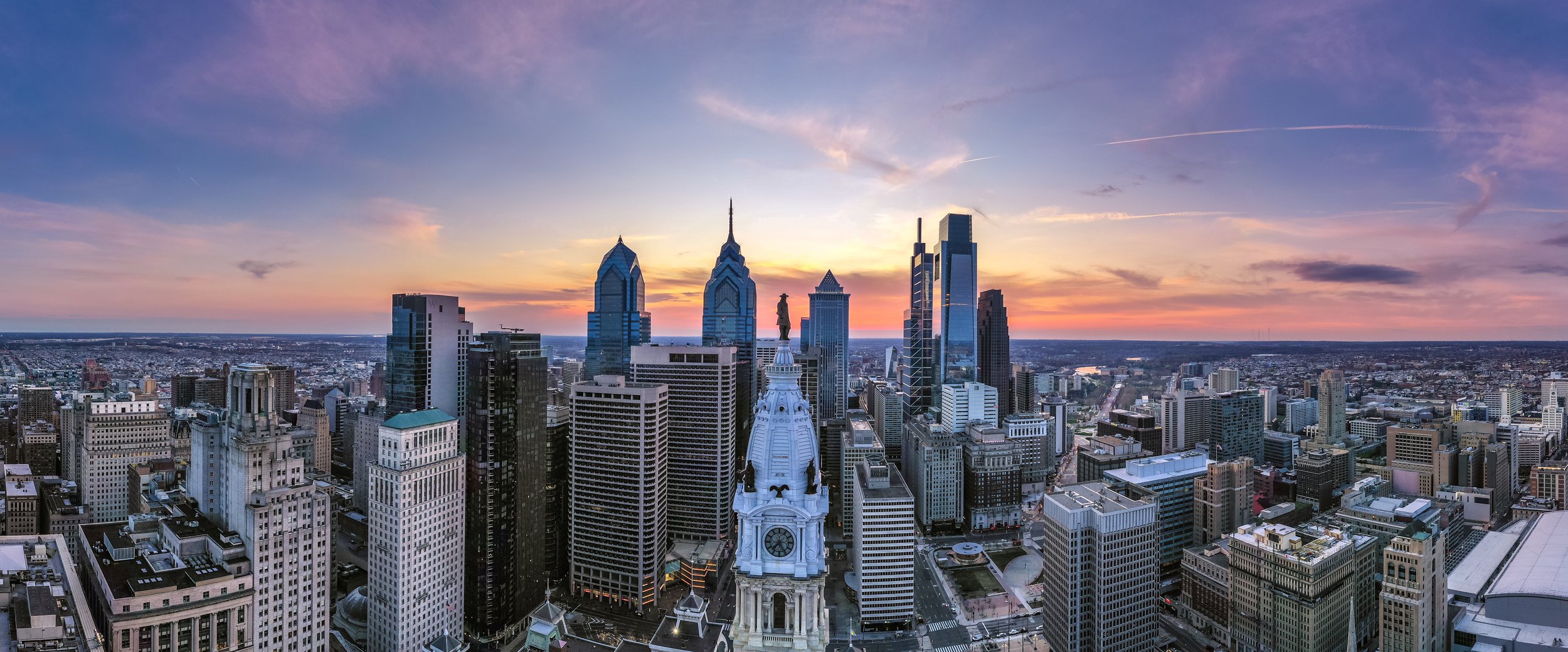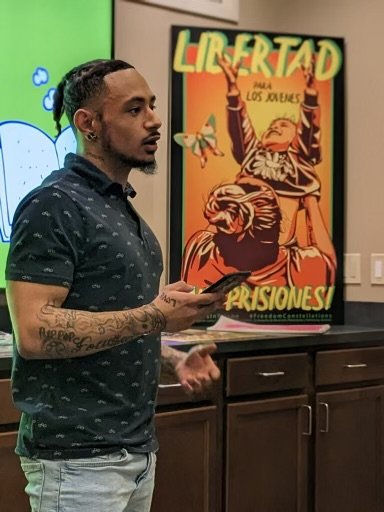‘We got to look at people more like human beings’: In conversation with Care, Not Control
Bre Stoves, a youth leader at The Village of Arts & Humanities, and Jared Cooper, a youth leader at Youth Art and Self-empowerment Project, are working with the Care, Not Control campaign to end youth incarceration in Pennsylvania. Stoves’ and Cooper’s own experiences with the criminal justice system motivate them to create new systems that support youth and their freedom.
The Village of Arts & Humanities is a North Philadelphia organization aiming to help youth and families through art-based initiatives. There, Stoves shares her story to support other youth and advocate for youth justice reform. Cooper supports the Youth Art and Self-empowerment Project, an organization fighting to end youth trials and incarceration, by encouraging participants to express themselves creatively and build leadership skills.
In Conversation with Bre Stoves & Jared Cooper
By Natalie Kerr, 2022 Philly Movement Media Fellow
This interview is part of an interview series by Just Media to highlight, uplift and support the work being done by local movement organizers in Philadelphia. The work being done by directly impacted community leaders is often missing from mainstream media narratives.
Jared Cooper (left) & Bre Stoves (Right)
What inspires you to be a youth advocate with the Care, Not Control campaign?
Cooper: What inspired me to do this work is that I was cared for. And I wasn't controlled. And I had the opportunity to actually change my life. The organizations that make up the Care, Not Control coalition saved my life, allowed me to have a second chance, and to really show who I am as an individual. And, I feel like that's super important because I feel like a lot of the youth incarceration youth nowadays is based off of a crime that was said to be committed, and not based off who the individual is, what the individual’s going through, what their circumstances are like, what their mental health’s like and what level of experience are they at. We got to look at people more like human beings.
Stoves: What drives me to do the work that I do is, not only being impacted by the system, but experiencing the things that I experienced at a young age opened my eyes to how many more young people experienced the same thing, or have or are going through the same thing at a young age now. I know, from my experience, I didn't really understand it. I can just understand and imagine how, you know, the young people feel and today, newer generations. My biggest motivation is to take it step by step, but hopefully, over time, be able to stop that cycle and create a better community for our next generation, and tear down these facilities so that young people can have different resources and opportunities outside of incarceration.
What are you proud to have accomplished as an advocate?
Cooper: I've been out of jail for three years. And I don't plan on going back ever. God willing. And I'm grateful for my freedom. Working hard for my freedom is one of my biggest accomplishments. Being able to connect to real people who are fighting real challenges, you know, being able to spread my love and my energy and being able to build myself up to a point where people can lean on for strength. I take all the pride in being a symbol of strength for those around me. I'm beyond proud of myself for never giving up. I'm still here, still fighting, still pushing forward through everything. There is no adversity that will bring me to a point where I won’t get back up.
Stoves: My win is being able to continuously, and I plan to continue, to speak and advocate and be the voice for youth and for young people in the state and hopefully be able to show them land allow them to see, like, you're not fighting this alone. You're not the only one going through or have been through this. Not only adults, but there are young people, young youth advocates out here trying to fight for y'all to come home, y'all to have better opportunities and options outside of being locked away in adult-like settings.
The Care, Not Control campaign is youth-led. How does that help your work? Does it ever create challenges, being a young advocate?
Cooper: Especially when people look at our age, and judge us based off our age, I feel like people really don't understand how much saturated experience that we have, in the short amount of time that we've been on this earth. But I feel like age is all really just relative to a number. When it comes to your experiences and what you're going through. Nobody can tell you how much you know how much knowledge or wisdom you have based on that number.
What kind of support are you hoping to create for youth in Philadelphia?
Cooper: Just intervention. There's a lot of people - youth and adults - who struggle with mental health. It is absolutely proven that mental health impacts decision-making. A lot of these legal cases that young people are fighting are based on a single decision made in a single moment.
Feeling supported and comfortable with the resources they need can make these youth feel safe. I can't stress to you how important it is to have someone to actually talk to. Somebody that you could feel comfortable with, and you could say whatever you want, without any discomfort, without feeling like you'll be judged, without feeling like they're gonna go tell somebody.
Stoves: Even just the organization I work at, The Village of Arts and Humanities, they have a lot of different creative programs for young people. If I was aware of those things – these things have been there for some years, for some decades now, I just wasn't aware of it until recently – but if I was aware of it at a young age, I would love to come to these programs at the school or throughout the summertime, you know, to kept myself out of trouble or kept myself from repeating that cycle. You got something to look forward to when you leave school, not just “what’s the next thing I'm gonna get into trouble.”







